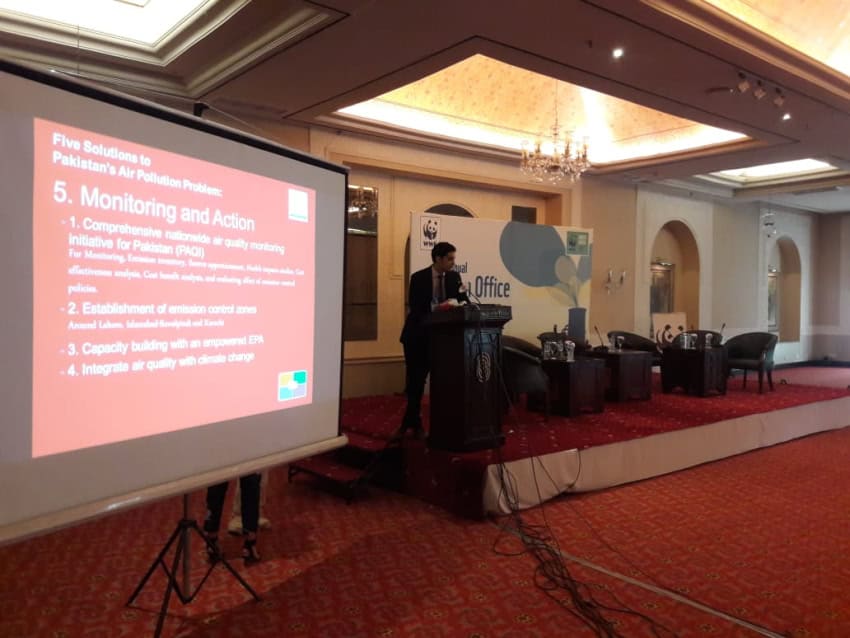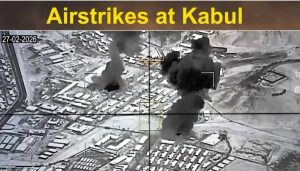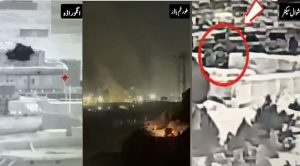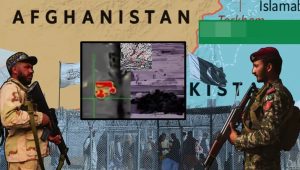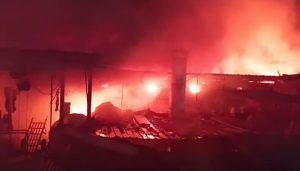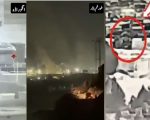ISLAMABAD – The WWF-Pakistan held its seventh Annual Green Office Conference in Islamabad on Thursday.
The theme of this year’s conference was air pollution, with a particular focus on the growing issue of smog. The aim of the event was to turn the tide and establish a consensus between relevant public and private sectors on the roles, responsibilities, and actions needed to improve air quality.
The one-day event was attended by corporate partners, public sector leaders, academia and industry practitioners from across Pakistan.
Hammad Naqi Khan, Director General, WWF- Pakistan, while welcoming the participants said: “Lahore and Karachi are among the ten most polluted cities in the world in terms of air quality, according to air quality monitor AirVisual. The ranking today puts Lahore at the top of the list, and urgent action needs to be taken to tackle this issue.
“Air pollution caused by traffic, industries, crop burning and burning of solid waste are major contributors of smog and the layer of smog is expected to thicken in the coming days. Urban air pollution in Pakistan is among the world’s most severe, significantly damaging human health, quality of life, economy and the environment.”

Following Khan’s address, Lauri Myllyvytra, Energy and Air Pollution Analyst, Green Peace, shared his research on the prevalent air quality of Pakistan’s leading cities. He also gave an insight into the actions and framework followed by countries such as China, the USA and some countries from the European Union, in tackling the issue of smog.
Ms Syeda Malika, Director General, Environmental Protection Department (EPD), elaborated on the current smog policy and shared highlights from the Punjab Clean Air Action Plan. While presenting Malika said, “Smog is a form of severe air pollution, when air quality changes drastically. The EPD records the Air Quality Index every day and takes stern actions against violators. Industrial units, brick kilns or any unit found polluting the air is sealed unless it has air pollution control systems installed.
“Solid waste and crop stubble burning are banned and FIRs are registered against the violators. So far, the EPD has installed air quality monitors in Multan, Gujranwala, Faisalabad, and Lahore.”
As brick kilns are a big contributor to air pollution, the working dynamics, and benefits of zig-zag technology which aims to decrease pollution were presented by Dr Faiza Sharif, Associate Professor, Government College University.
The founder of Pakistan Air Quality Initiative, Abid Omar briefed participants about quantitative analysis of emissions and the negative impacts smog has on human health.
A panel discussion comprising of environmental, health, industrial and agricultural experts was then conducted, moderated by environmental journalist, Ms Rina Saeed. During the discussion, issues around the social, economic and health impacts of smog were discussed.
Mr Malik Amin Aslam, Advisor to the Prime Minister on Climate Change, while giving an insight to the Clean Green Pakistan Initiative stated, “The present government is most certainly committed to playing its part in combating this challenge. In this regard, the government has already taken concrete steps including planting trees, banning brick kiln operations, shifting brick kiln industry towards zig-zag technology, curbing open crop stubble and waste burning, controlling vehicular pollution, installation of scrubbers for polluting steel mills and most essentially monitoring local as well as cross-border pollution movements”.
He also awarded certificates of appreciation for substantial carbon emission reduction, under the WWF Green Office Initiative, to Pakistan Telecommunication Limited (PTCL), Sadaqat Limited and Packages Limited. A special certificate and shield of acknowledgement were presented to the project coordinator for successfully implementing the Green Parliament Project.
Dr Masood Arshad, Director, Energy Climate and Water, WWF-Pakistan, concluded the event and thanked participants, speakers and specifically the government sector for recommending future actions to control air pollution.

